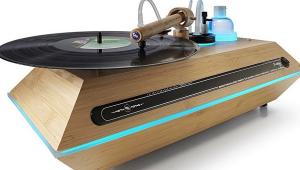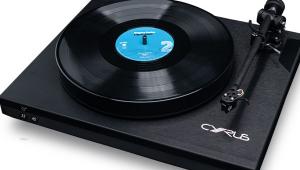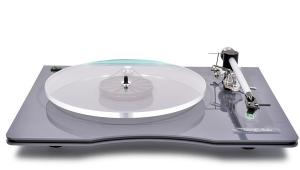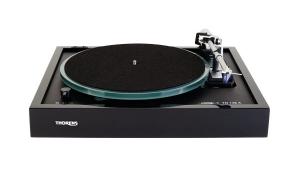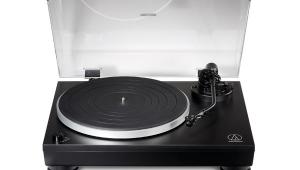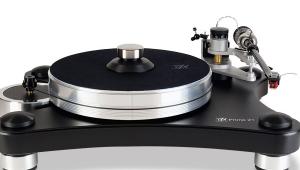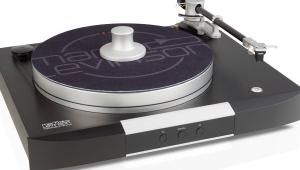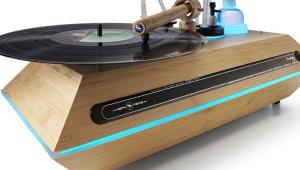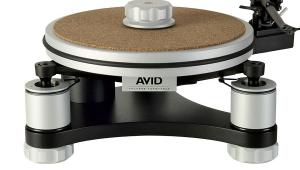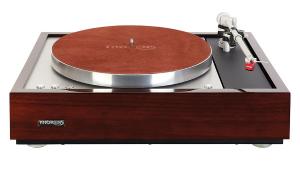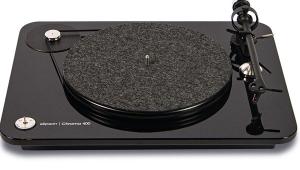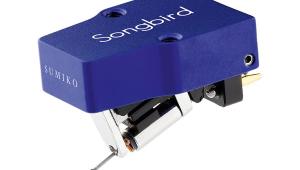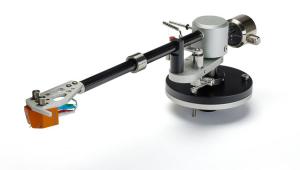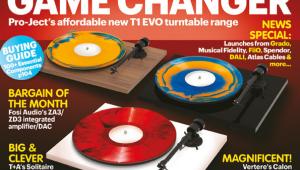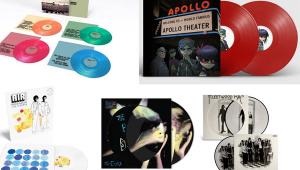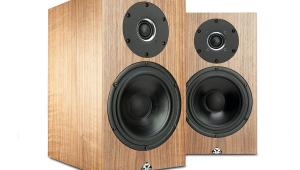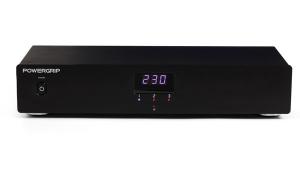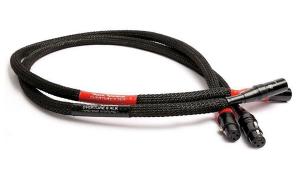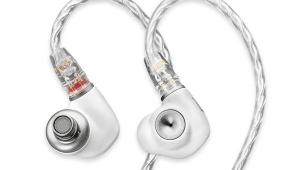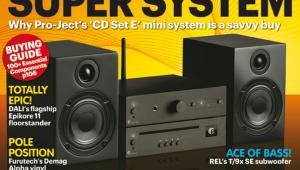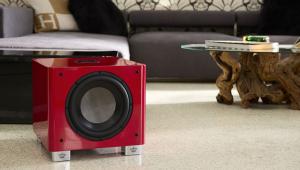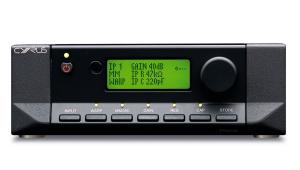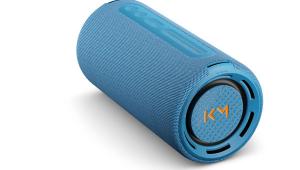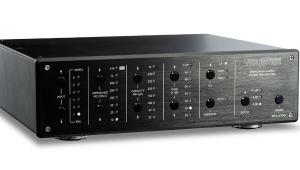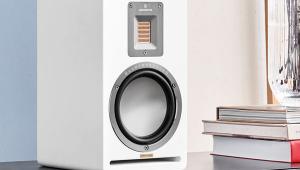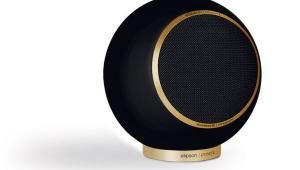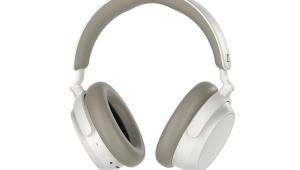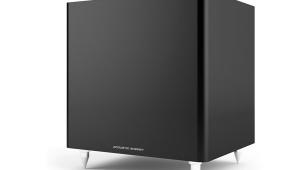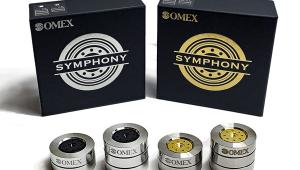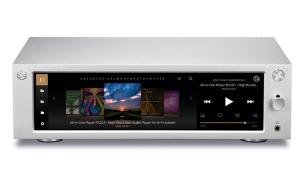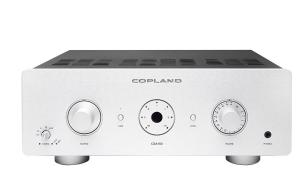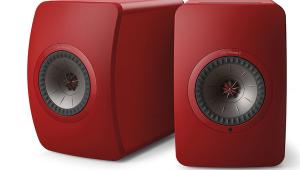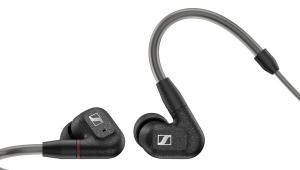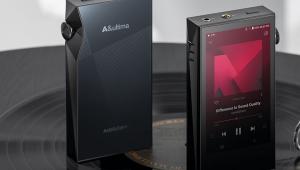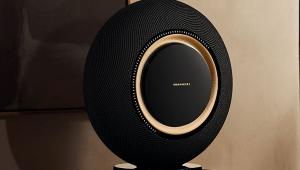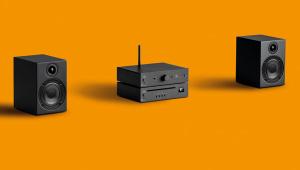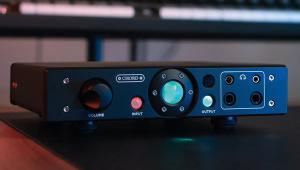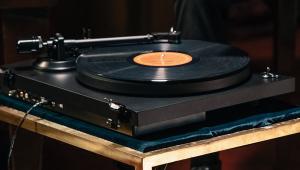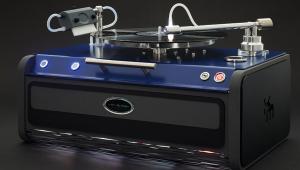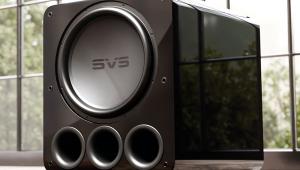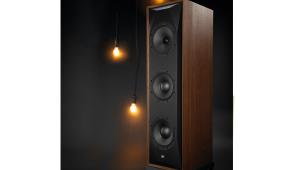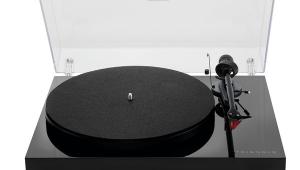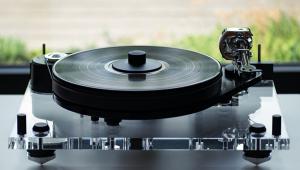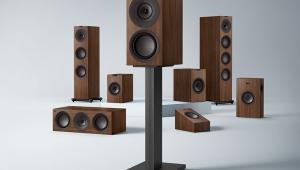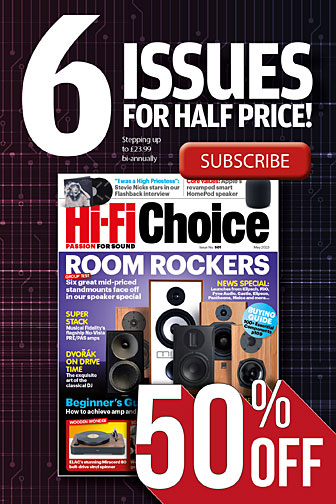Townshend Audio Rock 7 - £3,300
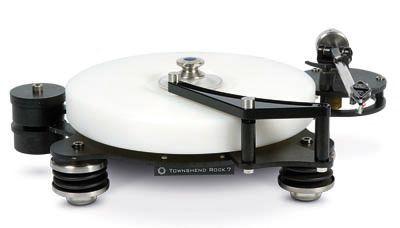
The Rock range of turntables has invariably been distinguished by the front-end damping trough, developed as a result of research at Cranfield Institute of Technology and commercialised by Townshend in the 1980s.
In many ways it’s a very different turntable from the old ‘Elite Rock’ that made the brand famous. Construction is based on 6mm steel plate, with the main chassis cut out in a pleasingly curvy shape – which accommodates the huge main bearing, the arm mounting and the three bellows suspension feet.
These are a development of another long-standing Townshend idea and consist of a spring inside a rubber bellows with a small air leak. This cunning arrangement gives a low- resonant frequency which helps attenuate audio-band vibration, along with enough damping to prevent uncontrolled bounce due to footfall or someone having just cued a disc.
The platter is made of white plastic and sits on a metal subplatter, driven by a round-section belt from the motor, an AC motor in a separate metal housing which does not contact the chassis directly. Speed change is manual and an ingenious arm-mounting plate is fitted, fully adjustable and clampable for rigidity.
Our Rock 7 was supplied with an Excalibur III arm (£3,000 the pair), like the original Excalibur using a thin-wall stainless steel tube, but now mounted in the base and bearing of a Rega RB250. The headshell is a space-frame assembly complete with paddle for the damping trough.
Sound qualityYet again, there was some disagreement over the handling of bass. The unusually tight grip that that front-end trough imparts on the sound isn’t always to everyone’s taste. Indeed, we’d go as far as to say that Rock bass can take a bit of getting used to and we would advise that you take any opportunity to do so, as many listeners find it very rewarding. A majority of ours certainly did, one pronouncing this his favourite deck of the group largely on the strength of its bass. As he pointed out, it’s not so much that the bass goes down deep, more than it has excellent definition and clarity.
Further up the spectrum, the sound can occasionally be a little hard and lacking in communication. Only occasionally, though, and most noticeably when the upper midrange is very busy, as it is in music for multiple voices or close-miked symphony orchestra. In music where lower frequencies dominate there is a good deal of get-up-and-go in evidence and that makes this a great deck for rock music – we also liked it for solo piano, though that wasn’t part of the blind listening.
Imaging is good in terms of stability, though the overall width sometimes seems a little restrained. Rhythm and pace are good, too. They are not overdone, which can often be more tiring than a little reticence.
Detail from the Rock 7 is around the group average, but the extra resolution that the trough extracts from the bass does tip the balance slightly in the deck’s favour overall.
LIKE: Very well-defined bass; good detail; well judged rhythm and pace
DISLIKE: Occasional hardness in the higher midrange and treble
WE SAY: In many ways this is one of the least characterful decks around – in a good way
DETAILS
Origin: UK
Weight: 13kg
Dimensions: (WxHxD) 480x140x360mm
Features:
• 33/45RPM
• Manual speed change
• Freestanding motor assembly
• Captive arm leads
Distributor: Townshend Audio
Telephone: 020 979 2155
Website: townshendaudio.com
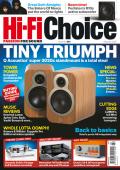 |
Inside this month's issue:
Q Acoustics 3020c standmount loudspeakers, Perlisten R10s active subwoofer, Quad 33 and 303 pre/power amps, Acoustic Solid Vintage Full Exclusive turntable, newcomer Fell Audio Fell Amp and Fell Disc and lots, lots more...
|
